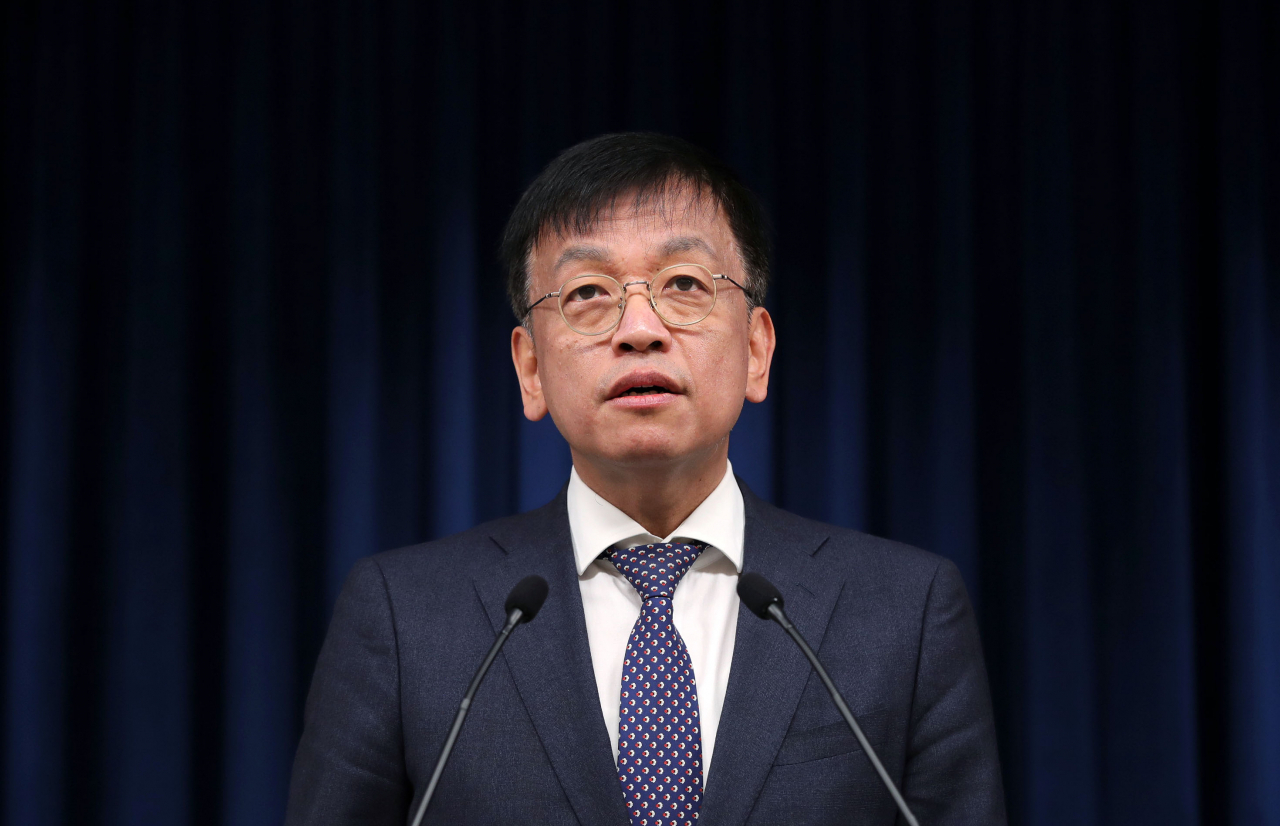Seoul to expand energy vouchers for low-income families
Presidential secretary says higher gas bills inevitable, blames sharpness of increase on Moon's energy policy
By Shin Ji-hyePublished : Jan. 26, 2023 - 13:54

The government decided Thursday to expand support for low income families struggling to pay gas bills by offering energy vouchers and discounts as rapidly growing energy costs have become the center of political debate.
President Yoon Suk Yeol’s economic secretary Choi Sang-mok said the value of energy vouchers given to 1.17 million households classified as economically vulnerable would be doubled to 304,000 won ($246). The range of discounts for gas bills will also be doubled to 18,000 won-72,000 won for a separate 1.6 million low-income households.
“Heating costs have risen significantly in recent times due to the suppression of rate increases over the past few years,” said Choi.
“Since the Russia-Ukraine war, gas prices have skyrocketed internationally and each country has gone through the process of bringing rates into line with reality," he said, adding that Korea was late in responding to this "in recent years," an apparent reference to the Moon administration's reluctance to respond to earlier increases.
Last year, gas prices for housing rose by 42.3 percent. Although the government froze gas bills in the first quarter of this year to alleviate the burden of heating costs in winter, Choi hinted at raising gas rates in the coming quarters without specifying the dates, citing similar moves in other countries.
The international price of natural gas has soared tenfold since the second half of 2021, he added.
“The increase in gas prices is a global phenomenon,” Choi said. Major countries, including the US, UK and Germany, have also seen a recent surge in gas prices, with residential gas prices doubling or quadrupling in 2022 compared to the previous year, he said.
Residential gas bills in 2022 saw on-year increases of 3.3-fold in the US, 2.6-fold in the UK and 3.6-fold in Germany. But Korea’s gas rates have been “maintained at a very low level,” ranging from 23 percent to 60 percent of the price in these countries.
“Under these difficult external conditions, there is an inevitable aspect of normalizing energy prices,” he said, adding the government would make utmost policy efforts to minimize the burden on the people in the process.
While the government unveiled temporary plans, citing the previous liberal-leaning government's policy as the cause of soaring energy bills today, opposition party leader Lee Jae-myung proposed to the government to provide subsidies for high energy prices worth about 7.5 trillion won to support the vulnerable.
Lee also stressed the need to consider introducing a "windfall tax," citing oil refineries, which recently saw a surge in operating profits. A windfall tax refers to an additional income tax levied on a company that makes excess profits due to government policies or sudden changes in the external environment.










![[Today’s K-pop] BTS pop-up event to come to Seoul](http://res.heraldm.com/phpwas/restmb_idxmake.php?idx=644&simg=/content/image/2024/04/17/20240417050734_0.jpg&u=)
![[Graphic News] More Koreans say they plan long-distance trips this year](http://res.heraldm.com/phpwas/restmb_idxmake.php?idx=644&simg=/content/image/2024/04/17/20240417050828_0.gif&u=)





![[KH Explains] Hyundai's full hybrid edge to pay off amid slow transition to pure EVs](http://res.heraldm.com/phpwas/restmb_idxmake.php?idx=652&simg=/content/image/2024/04/18/20240418050645_0.jpg&u=20240419100350)

